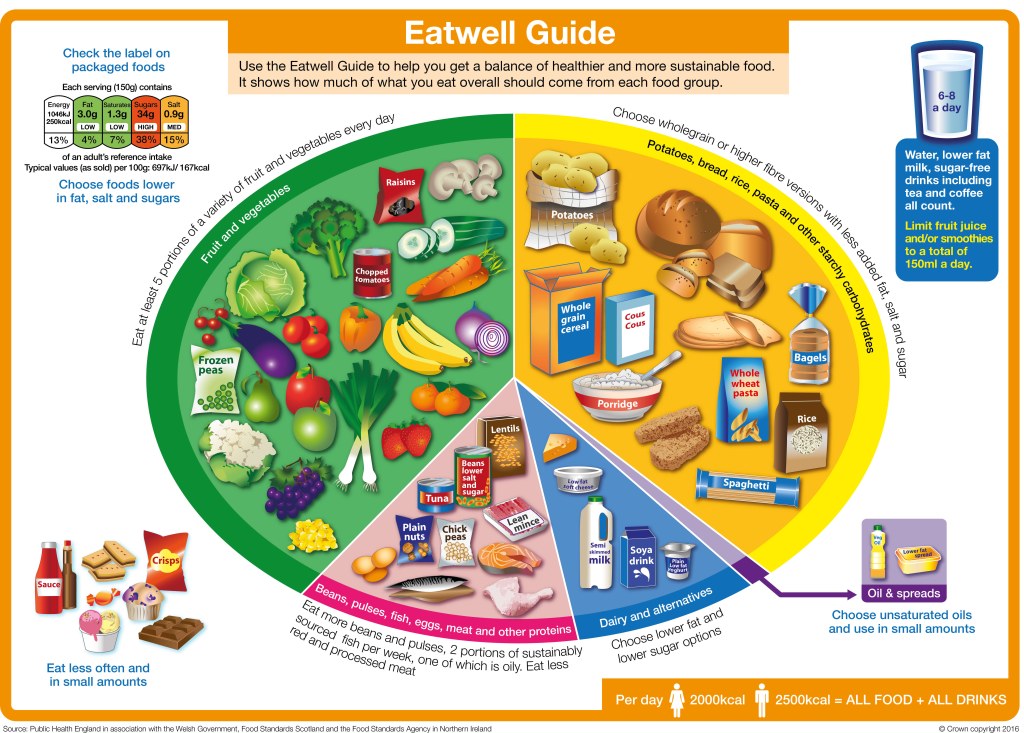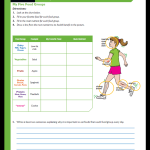Nourishing Your Baby Bump: Essential Tips For Healthy Eating In The 3rd Trimester
Healthy Eating in the 3rd Trimester: Nurturing Yourself and Your Baby
Greetings, Readers!
As you progress into the final stretch of your pregnancy journey, it becomes more important than ever to pay attention to your diet and ensure that you and your growing baby are getting the necessary nutrients. In this article, we will explore the importance of healthy eating during the 3rd trimester and provide you with valuable information and tips to nourish yourself and your baby in the best possible way.
1 Picture Gallery: Nourishing Your Baby Bump: Essential Tips For Healthy Eating In The 3rd Trimester

Introduction
The 3rd trimester of pregnancy is a crucial time for both the mother and the baby. During this period, the baby undergoes rapid growth and development, and the mother’s body goes through various changes to support this growth. It is essential to consume a well-balanced and nutritious diet to provide the necessary nutrients and energy for both the mother and the baby.
Proper nutrition during the 3rd trimester can help reduce the risk of complications, support the baby’s brain development, and ensure the mother’s well-being. Let’s delve deeper into the specifics of healthy eating during this critical phase of pregnancy.
What is Healthy Eating in the 3rd Trimester?
Healthy eating in the 3rd trimester involves consuming a variety of nutrient-rich foods that provide the necessary vitamins, minerals, and macronutrients for both the mother and the baby. It is important to focus on whole foods, such as fruits, vegetables, whole grains, lean proteins, and healthy fats. These foods provide essential nutrients that are vital for the baby’s growth and development, as well as maintaining the mother’s overall health.
Key Points:

Image Source: dietinpregnancy.co.uk
Include a variety of fruits and vegetables in your diet for essential vitamins and minerals.
Choose whole grains over refined grains for added fiber and nutrients.
Opt for lean proteins, such as poultry, fish, legumes, and tofu.
Incorporate healthy fats from sources like avocados, nuts, and olive oil.
Stay hydrated by drinking an adequate amount of water throughout the day.
Who Should Follow a Healthy Eating Plan in the 3rd Trimester?
A healthy eating plan during the 3rd trimester is recommended for all pregnant women. However, it is especially important for those who have specific dietary restrictions or medical conditions that may require additional attention to nutrition. It is crucial to consult with a healthcare provider or a registered dietitian to develop a personalized eating plan that meets individual needs and ensures optimal health for both the mother and the baby.
Key Points:
All pregnant women should strive for a healthy eating plan in the 3rd trimester.
Those with dietary restrictions or medical conditions should seek professional guidance.
Consult with a healthcare provider or a registered dietitian for personalized advice.
When Should You Start Implementing Healthy Eating Habits?
Implementing healthy eating habits should ideally begin even before conception. However, if you haven’t been following a healthy diet, it is never too late to start. The 3rd trimester is an ideal time to focus on providing optimum nutrition to support the baby’s growth and development. By making positive changes to your diet during this critical period, you can still reap the benefits and give your baby a healthy start in life.
Key Points:
Preconception is the best time to start implementing healthy eating habits.
If you haven’t been following a healthy diet, start during the 3rd trimester.
Positive changes at any stage can benefit your baby’s growth and development.
Where Can You Find the Necessary Nutrients?
The necessary nutrients can be found in a wide range of foods from various food groups. Fruits and vegetables are excellent sources of essential vitamins and minerals, such as vitamin C, vitamin A, folate, and potassium. Whole grains provide fiber, B vitamins, and minerals like iron and magnesium. Lean proteins, such as poultry, fish, legumes, and tofu, offer essential amino acids and iron. Healthy fats from sources like avocados, nuts, and olive oil provide omega-3 fatty acids and vitamin E.
Key Points:
Fruits and vegetables are rich in vitamins and minerals.
Whole grains provide fiber, B vitamins, and minerals.
Lean proteins offer essential amino acids and iron.
Healthy fats provide omega-3 fatty acids and vitamin E.
Why Is Healthy Eating Important in the 3rd Trimester?
Healthy eating during the 3rd trimester is crucial for several reasons. Firstly, it provides the necessary nutrients for the baby’s growth and development, including the development of the brain and other vital organs. Secondly, it helps maintain the mother’s overall health and energy levels during this physically demanding period. Additionally, a nutritious diet can reduce the risk of gestational diabetes, high blood pressure, and excessive weight gain, all of which can lead to complications during pregnancy.
Key Points:
Healthy eating supports the baby’s growth and development.
A nutritious diet maintains the mother’s overall health and energy levels.
It reduces the risk of complications such as gestational diabetes and high blood pressure.
How Can You Implement Healthy Eating Habits in the 3rd Trimester?
Implementing healthy eating habits in the 3rd trimester can be achieved through a few simple steps. Start by planning your meals and snacks to ensure you have a balanced diet. Include a variety of foods from different food groups to obtain a wide range of nutrients. Listen to your body’s hunger and fullness cues, and eat when you’re hungry and stop when you’re satisfied. Stay active and engage in regular exercise, with guidance from your healthcare provider. Lastly, seek support from your partner, family, or friends to maintain a healthy eating routine.
Key Points:
Plan your meals and snacks for a balanced diet.
Incorporate a variety of foods from different food groups.
Listen to your body’s hunger and fullness cues.
Stay active and engage in regular exercise with guidance.
Seek support from your loved ones to maintain a healthy eating routine.
The Advantages and Disadvantages of Healthy Eating in the 3rd Trimester
Advantages:
1. Optimal Nutrition for Baby
Healthy eating during the 3rd trimester ensures that your baby receives all the necessary nutrients for growth and development, including vitamins, minerals, and macronutrients.
2. Reduced Risk of Complications
A well-balanced diet can help reduce the risk of gestational diabetes, high blood pressure, and excessive weight gain, which are common complications during pregnancy.
3. Increased Energy Levels
A nutritious diet provides the energy needed to support the mother’s physical demands during the 3rd trimester, helping combat fatigue and keeping her energized.
Disadvantages:
1. Food Aversions and Cravings
Pregnancy hormones can lead to food aversions and cravings, which may make it challenging to maintain a healthy eating plan.
2. Nausea and Digestive Issues
Some pregnant women may experience nausea and digestive issues, making it difficult to consume certain foods or tolerate large meals.
3. Need for Nutritional Guidance
Implementing a healthy eating plan may require guidance from healthcare providers or registered dietitians to ensure the optimal intake of nutrients while considering individual needs and restrictions.
Frequently Asked Questions (FAQs)
1. Can I indulge in occasional cravings during the 3rd trimester?
While occasional indulgence is acceptable, it is important to maintain a balanced diet overall. Moderation is key, and it is essential to listen to your body’s needs and cravings.
2. Should I be concerned if I’m not gaining much weight in the 3rd trimester?
Weight gain can vary from person to person, and it is best to consult with your healthcare provider. If your baby is growing appropriately and you are overall healthy, minimal weight gain may not be a cause for concern.
3. Are there any specific foods that I should avoid during the 3rd trimester?
It is important to avoid certain foods that may pose a risk of foodborne illnesses, such as raw or undercooked meats, unpasteurized dairy products, and raw seafood. Consult with your healthcare provider for a comprehensive list of foods to avoid.
4. Can I continue to exercise during the 3rd trimester?
Exercise during the 3rd trimester is generally safe and beneficial. However, it is crucial to consult with your healthcare provider to determine the appropriate level of activity based on your individual circumstances.
5. How can I deal with heartburn and other digestive issues during the 3rd trimester?
To alleviate heartburn and other digestive issues, try eating smaller, more frequent meals, avoiding spicy and greasy foods, and staying upright after meals. If symptoms persist, consult with your healthcare provider for further guidance.
Conclusion
In conclusion, healthy eating in the 3rd trimester plays a vital role in supporting the growth and development of both the mother and the baby. By following a well-balanced diet, you can provide the necessary nutrients for optimal health and reduce the risk of complications. Remember to listen to your body’s needs, seek guidance from healthcare professionals, and enlist the support of your loved ones. Nurturing yourself through healthy eating will set the stage for a healthy and happy future for both you and your little one.
Final Remarks
Disclaimer: This article is for informational purposes only and should not replace professional medical advice. Consult with your healthcare provider or a registered dietitian for personalized guidance tailored to your specific needs and circumstances.
This post topic: Fitness Tips

